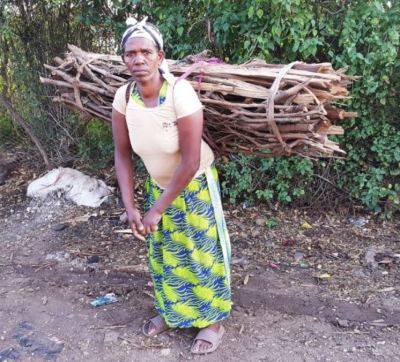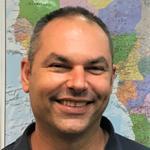
A quick turn of the knob and the pot starts heating up. A few seconds of luxury, completely taken for granted. Somewhere in Ethiopia a mother is also heating up a pot for her family with fire created from wood, leaves, animal dung and crop residues.
Most households in Ethiopia still make use of traditional biomass energy as they lack stoves that can make use of other fuel sources. Often it is the women who needs to fetch the firewood, not only for their own families, but also to sell. This is the only income many of these families have. Most women get up before sunrise and cover vast distances to go and collect enough wood to sell. They then make the trip back to the markets carrying nearly 20kg of firewood on their backs.
Going to collect firewood might seem like an everyday task, but not for these ladies. For them it causes much distress. Their wood often gets confiscated by guards and they are often mistreated and raped. Aregash is but one of the many women who have such heartbreaking stories.
“One day, about a year ago the forest guards confiscated my wood and I had to come back home empty-handed. As my children were waiting for food, I had nothing to give them. So I got extremely distressed and went to the backside of my house, took a rope, and hung myself on the roof. As I was struggling to die, an anonymous child saw me and shouted aloud. Those who heard her cry came immediately to my rescue. They cut the rope and carried me down. I was hurt but came down alive.”
Aregash is only 36 years old, she has 6 children and have been collecting and selling firewood for 20 years. Her husband earns very little, not enough to provide food for their kids.
AE Ethiopia has heard the cry for help and identified 30 women in the Arba Minch district to enroll in a new program called ‘Life Transformation of Vulnerable Firewood Collecting Women’. These ladies will be trained in sewing, tailoring and embroidery for 6 months and then divided into smaller work groups, each with 3 ladies. AE Ethiopia wishes to equip each group with a sewing machine and help them to open a small shop where they can sell their items.
Our sewing programs in Kenya, Malawi and South Africa has transformed the lives of many women and their families, but in due course their transformation also spills over into their communities.
Annie Kachali, a post graduate from AE Malawi reflects on her training:
“With the skills which I acquired from AE sewing school, I have been able to make my family’s living standard to be easier than before. Through this activity, I am able to generate income of about MK15, 000.00 (U$20.00) a week which helps me to meet my family’s basic needs. I am able to buy fabrics from part of the generated money while a certain part of the money, I contribute to the church activities. I am glad to state that I have managed to pass my skills on to my neighbour’s daughter who can now manage to do recommendable work.”
AE Ethiopia has partnered with local churches to run this program and one of them has kindly offered their church as a venue for the training to take place.
Pray with our team in Ethiopia and the partner churches as they prepare to launch this project. No one should go through what these ladies have been through, pray for their protection, for true transformation to take place in their lives and for doors to open so they can start their own businesses.

Ben Campbell (Sydney) is the CEO Africa Enterprise.